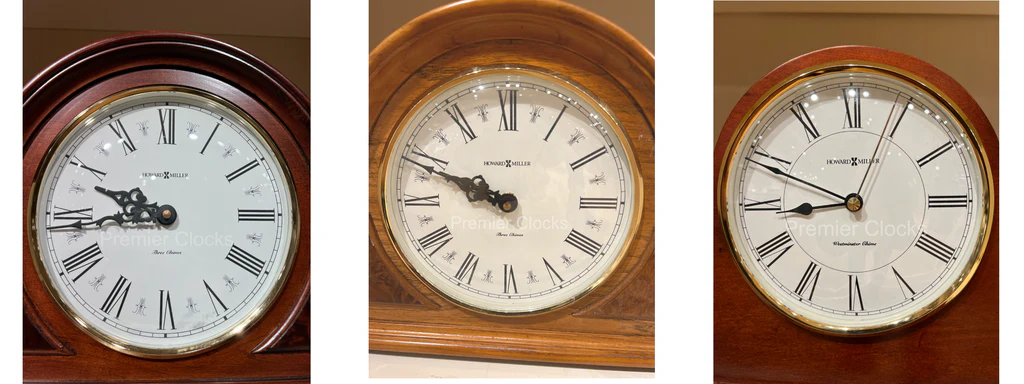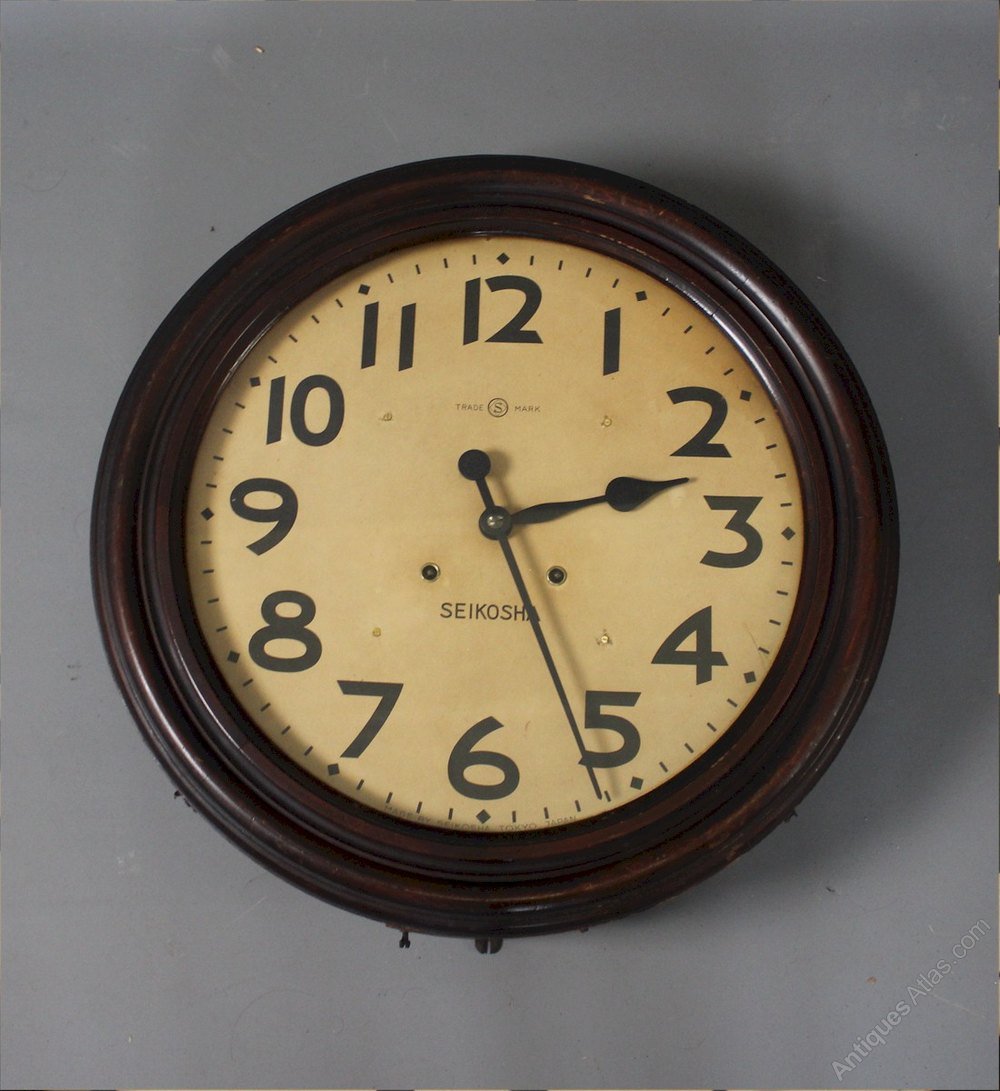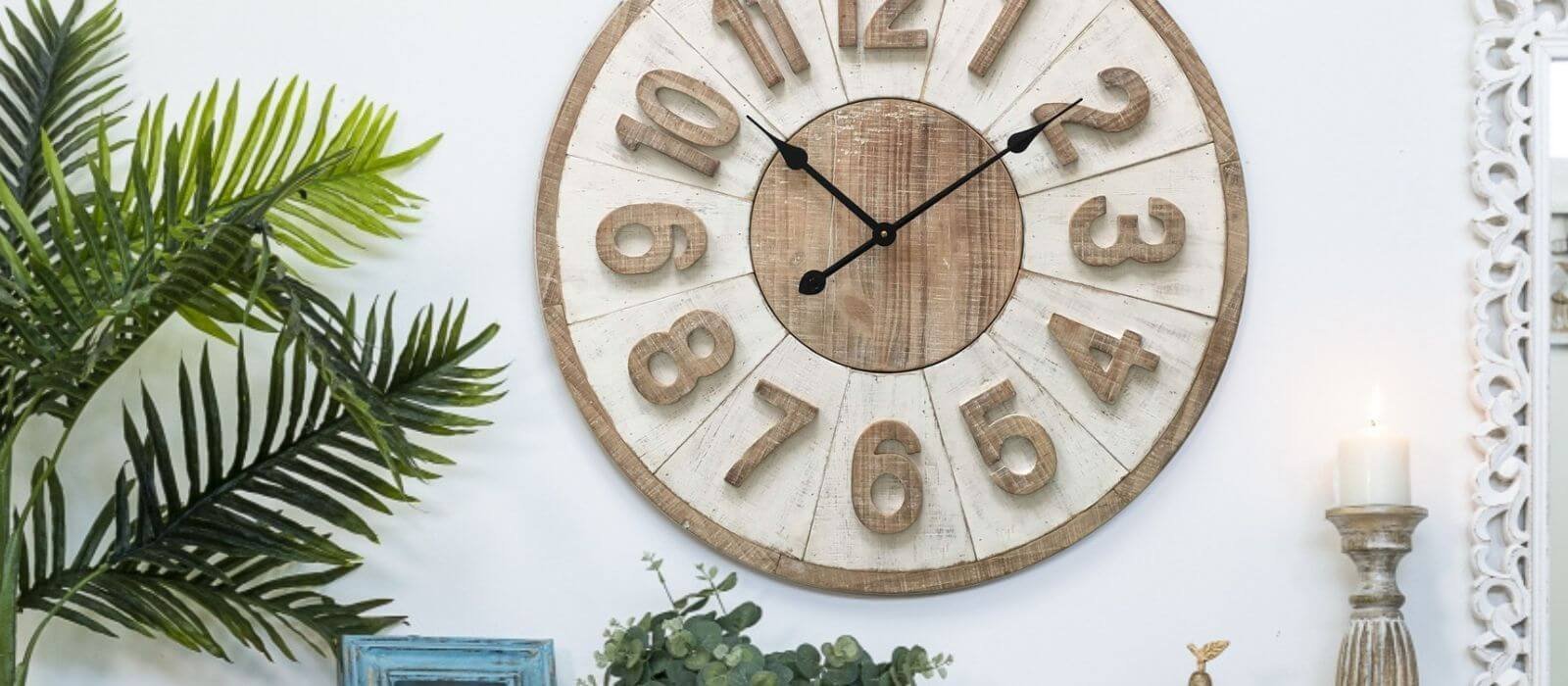Collecting clocks is a fascinating and rewarding hobby that combines historical appreciation with a keen eye for craftsmanship. For collectors, understanding what makes a clock valuable is essential for building a meaningful collection. This guide explores the key factors that contribute to a clock’s value, helping both novice and seasoned collectors make informed decisions.
1. Historical Significance
One of the primary factors determining a clock’s value is its historical significance. Clocks that have historical importance or are associated with notable events or individuals tend to be more valuable.
- Provenance: A clock with a well-documented history or that has been owned by a prominent figure can command higher prices. Provenance provides context and authenticity, adding to the clock’s overall value.
- Historical Period: Clocks from significant historical periods or those that represent a particular era in clockmaking history often have higher value. For example, a clock from the Victorian era or an early 20th-century piece might be highly sought after by collectors.
2. Rarity and Exclusivity
Rarity plays a crucial role in determining a clock’s value. The fewer examples of a particular type or model that exist, the more valuable it tends to be.
- Limited Production: Clocks produced in limited quantities or as special editions are generally more valuable due to their scarcity. Limited production models are often more desirable to collectors.
- Unique Features: Clocks with unique or unusual features, such as bespoke designs or rare mechanisms, can be more valuable. Collectors often seek out these distinctive elements to enhance their collections.

3. Craftsmanship and Quality
The quality of craftsmanship and materials used in a clock greatly affects its value. Well-crafted clocks with intricate details and high-quality components are highly prized.
- Material and Finish: Clocks made from premium materials, such as solid wood, brass, or precious metals, and those with high-quality finishes are more valuable. Attention to detail in the design and construction also contributes to a clock’s worth.
- Mechanism and Precision: The complexity and precision of a clock’s mechanism are significant factors. High-quality movements, such as those made by renowned clockmakers or with advanced technology, add to the clock’s value.
4. Condition and Restoration
The condition of a clock is a critical factor in determining its value. Well-preserved clocks are generally more valuable than those in poor condition.
- Originality: Clocks that retain their original components, such as dials, hands, and cases, are often worth more. Restoration can impact value, so it’s essential to use skilled professionals to maintain or restore a clock to preserve its authenticity.
- Working Order: A clock in good working order is more valuable than one that needs significant repairs. Functional mechanisms and accurate timekeeping are important considerations for collectors.
5. Brand and Maker
The reputation of the clockmaker or brand can significantly influence a clock’s value. Renowned brands and skilled artisans often produce clocks that are highly sought after.
- Famous Clockmakers: Clocks made by well-known clockmakers or prestigious brands, such as Longines, Patek Philippe, or Jaeger-LeCoultre, are typically more valuable. These brands have a reputation for quality and craftsmanship.
- Artisanal Quality: Clocks made by skilled artisans, even if they are not from a famous brand, can still be highly valuable. Unique craftsmanship and attention to detail contribute to their worth.
6. Market Trends and Demand
The value of clocks can also be influenced by market trends and collector demand. Trends in collecting can shift, affecting the desirability and value of certain types of clocks.
- Collector Interest: The popularity of specific styles or types of clocks can vary over time. Staying informed about current trends and collector interests can help guide your purchases and investments.
- Auction Results: Reviewing recent auction results for similar clocks can provide insights into current market values and trends. Auctions often reflect the prevailing demand and prices for collectible clocks.
7. Documentation and Provenance
Proper documentation and provenance can enhance a clock’s value. Documentation provides evidence of authenticity, history, and condition, which can be crucial for collectors.
- Certificates and Papers: Original certificates of authenticity, repair records, and other documentation can increase a clock’s value. These documents validate the clock’s history and craftsmanship.
- Expert Appraisals: Having a clock appraised by a reputable expert can provide a professional assessment of its value. Expert opinions can help confirm the clock’s authenticity and market worth.
Conclusion
Collecting clocks involves more than just an appreciation for timekeeping; it requires an understanding of the factors that contribute to a clock’s value. Historical significance, rarity, craftsmanship, condition, brand, market trends, and proper documentation all play a role in determining a clock’s worth. By considering these factors, collectors can make informed decisions and build a valuable and rewarding collection of timepieces.





Yo, check out pk365game! Heard some good stuff about their platform. Might give it a whirl this weekend. What do you guys think? This is their site pk365game
Been playing w88bingo non-stop. So much fun. Check it out here: w88bingo
Boom Casino aktualisiert regelmäßig die Zahlungsbedingungen, um einen erstklassigen Service aufrechtzuerhalten. Verwenden Sie für Auszahlungen dieselbe
Boom Casino-Zahlungsoption, um die Sicherheit aufrechtzuerhalten. Die Registrierung ist kostenlos und es werden Zahlungslösungen für
sichere, nahtlose Ein- und Auszahlungen in Ihrer Landeswährung ausgewählt.
Nach einer schnellen Registrierung schaltet Ihre erste Einzahlung ein personalisiertes Paket frei, mit dem Sie
das Beste aus Ihrem Spiel herausholen können. Auszahlungen in €
werden schnell bearbeitet, sodass Sie Ihre Belohnungen sofort genießen können, ohne
warten zu müssen.
Wir müssen und also einfach nur registrieren und sammeln mit jedem Einsatz Bargeld.
Die Auszahlungen führt das Boom Casino innerhalb von fünf
Stunden aus, meistens geht es sogar deutlich schneller.
Uns ist es wichtig, unseren Lesern nur Anbieter zu empfehlen, bei denen ihr Geld in sicheren Händen ist.
Bei einer Einzahlung von mindestens 50€ ins Spielerkonto winken 2 Bonusrunden an Jammin‘ Jars.
In dieser Hinsicht fällt der Willkommensbonus im Boom Casino doch etwas enttäuschend aus.
References:
https://online-spielhallen.de/snatch-casino-cashback-so-funktioniert-die-ruckerstattung-ihrer-einsatze/
Tatsächlich ist das Auszahlen nicht über die Prepaid-Karte, sondern nur nach Erstellung eines paysafe-Online-Kontos möglich.
Die Paysafecard Online Casinos bieten viele Vorteile,
insbesondere in puncto Sicherheit und Einfachheit.
Diese Behörden gewährleisten Spielerschutz, Transparenz und sichere Transaktionen, wodurch Betrug oder Datenmissbrauch effektiv verhindert werden.
In fast jedem Online Casi mit Paysafecard gelten bestimmte
Mindesteinzahlungen, die meist bei 10 € oder 20 € beginnen. Melden Sie sich
aber für das E-Wallet paysafe an, können Sie Gewinne
über das Online-Zahlungskonto mit höheren Limits auszahlen. Manche Anbieter bieten spezielle Paysafecard-Aktionen oder sind Paysafecard Casinos mit Freispielen und Reload Bonusangeboten, die
sich besonders lohnen können. Wer sicher in Paysafecard Echtgeld Casinos spielen möchte, der sollte
auf einige wichtige Punkte achten.
Es bietet eine umfangreiche Auswahl an über 400 Spielautomaten,
die Spielern eine Vielzahl von Themen und Gewinnmöglichkeiten bieten. Die Casinos in dieser Liste haben sich durch ihre zuverlässigen paysafecard Transaktionen und erstklassigen Spielerfahrungen ausgezeichnet.
Die Auswahl der Top 5 Online Casinos mit paysafecard basiert auf verschiedenen Kriterien, die für euch als
Spieler entscheidend sind.
References:
https://online-spielhallen.de/netbet-casino-auszahlung-ihr-umfassender-leitfaden/
Việc của bet thủ là chỉ cần đặt cược con số may mắn mà mình dự đoán sẽ trúng với số tiền cược hợp lý. Hệ thống tiến hành quay thưởng và cập nhật ngay sau đó, tỷ lệ thưởng trang chủ 66b có thể lên tới 1 ăn 99. TONY12-24
They may not move any other checkers until that knocked off checker is returned.
If you roll doubles, you get to move each die twice, concluding in four moves for that turn. Highlights show you where the checkers
can possibly move. 247 Backgammon has games in five difficulites, ranging from easy to expert!
Play with an artificially intellegent opponent or play with a friend with Pass & Play!
Our platform is continuously updated with new features and
improvements based on player feedback.
Whether you’re a seasoned player or new to the game, our platform is designed to provide a seamless and engaging online backgammon experience.
Backgammon is a two-player board game that focuses
on moving a set of colored checkers around the board, using dice to
determine where you are able to move. You can play backgammon online, along with other classic board games at CrazyGames.
If you place your checker on a point where an opponent has
placed a single checker, you knock their checker off the board – sending it back to the beginning.
Your “home” board is directly opposite your opponent’s “home” board.
Technically, the game can be doubled up to 64 times the
score, but it rarely goes beyond 4. The option to redouble belongs
exclusively to the player who accepted the
double. The opponent must either accept th doubled stake or resign to defeat
immediately (thus ending the game).
References:
https://blackcoin.co/casino-site-reviews-2025/
You can also always consult the helpful frequently asked questions
(FAQ) section for more information regarding the casino.
Again, feel free to review the terms and conditions to learn more about
the ins and outs of claiming this bonus. The wagering requirement for
this bonus is rather steep – at 50x.
Wolf Winner Casino also uses advanced RNG technology to maintain game integrity.
Always check local regulations in your specific jurisdiction, but
in general, Aussies are able to register and play on the site without issue.
They will be waiting for you 24/7 at any time to answer all
the questions. These resources reflect the casino’s broader commitment
to promoting a safe, enjoyable atmosphere for everyone involved.
Lastly, if you or someone you know struggles with gambling habits, Wolf Winner offers contact
information for specialized organizations that provide free and confidential counseling.
Community engagement also plays a role in fostering a responsible culture.
Besides the aforementioned categories of games, you can find additional different types of games at Wolf Winner.
All of the aforementioned games are developed by SwinttLive – not
by industry giant Evolution Gaming. You can find helpful info about this category of games at
the table games section on the site – feel free to review
it.
References:
https://blackcoin.co/casino-crypto-first-online-casino-review/
The help centre includes detailed guides for payment methods,
responsible gambling tools, and verification requirements.
Our support team responds within 10 minutes via live chat
and 6 hours for email enquiries. Level Up Casino delivers round-the-clock assistance through multiple channels including instant live chat and comprehensive self-service resources.
We require identity verification including photo ID and proof of address before processing withdrawal requests.
Level Up Casino hosts over 7,000 premium games from 50+ leading software providers, featuring everything from cutting-edge
pokies to immersive live dealer experiences. Our responsible gaming tools include self-exclusion options, deposit limits, loss
limits, wagering limits, and cool-off periods.
These enhanced limits support serious players requiring larger transaction capabilities.
VIP Enhanced Limits Higher-tier players may qualify for increased withdrawal limits through our
VIP programme.
References:
https://blackcoin.co/woospin-premier-pokies-paradise-for-aussie-players-in-2025/
Digital versions of the instant-win favourite, online scratch cards offer quick and easy gameplay.
Bingo is a straightforward yet thrilling game that can now be played online,
players mark off numbers on their cards as they’re called out.
His expertise goes beyond mere observation; Zack Achman immerses himself in the ever-evolving landscape of casinos, constantly exploring
the latest trends, games, and strategies. There are a lot of casinos in Australia that
payout real money. A lot of Australian online casino sites accept this payment method.
On the other hand, instant-play casinos allow you to save
your mobile device’s space while enjoying some gambling.
If you’re after a huge selection of pokies to play or high-quality live roulette and baccarat, then Ricky Casino
is likely the casino for you. Ignition is an online casino site that will tickle your fancy whether you’re a poker player looking for high-quality
tournaments or a crypto fan looking for swift transactions
and a great Bitcoin casino. Some of the best mobile casinos
include Skycrown, HellSpin, and PlayAmo, which offer great mobile experiences without needing to download an app.
Online casino loyalty programs reward players for their regular gameplay.
All casinos offer a free play or demo mode. These free online pokies casinos let you enjoy pokies for free, whether for practice or
just for fun.
us online casinos paypal
References:
https://www.jobexpertsindia.com/companies/top-casino-en-ligne-qui-acceptent-paypal-france
paypal casinos
References:
https://hootic.com
paypal casino online
References:
http://www.chinajobbox.com
casinos online paypal
References:
https://jobcopeu.com/employer/top-online-us-casinos-that-accept-paypal-in-dec-2025
best online casino usa paypal
References:
https://jobs.thetalentservices.com/employer/play-online-for-real-money-or-for-fun
online casino with paypal
References:
https://glimpsonworld.com
Heard Kubetvina is popular with some of my friends. I think I will give this casino a try and hope there are some surprising games. kubetvina